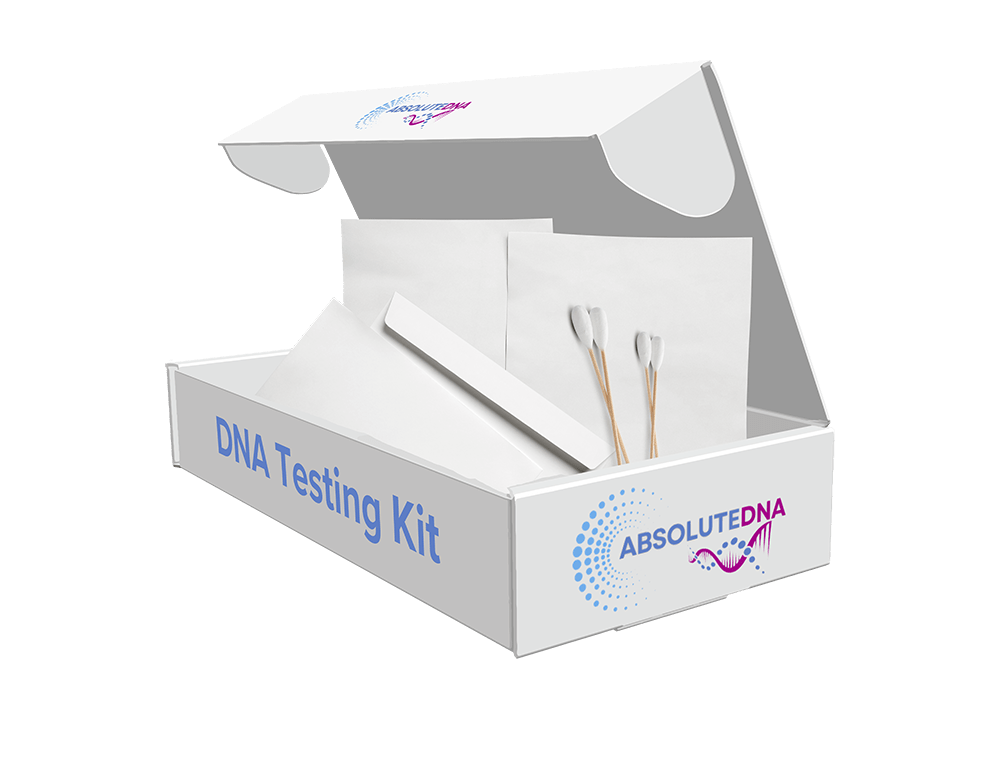The Ordering Process — Simple
Absolute DNA Services has streamlined the process for the Pharmacogenomics Panel, so it’s as easy as:
- Choose your test and order it online.
- Pay for your test.
- We require that you consult a genetic counsellor both prior to, and after, your test. Absolute DNA Services will request a referral form to be filled out by your GP, genetic counsellor, or specialist. A genetic counsellor can assist in deciphering your results so that you get the best and most accurate information relating to your individual test.
- When you order the Pharmacogenomics PGx Test, Absolute DNA Services will send you the appropriate referral forms for your genetic counsellor or doctor to complete. We then send your sample collection kit directly to one of our affiliated pathology centres. We will arrange your appointment for sample collection.
- After analysis, your results will be sent to your genetic counsellor or doctor, at which time they will discuss them thoroughly with you. You will receive your result within 2-3 weeks.
About Pharmacogenomics Panel
As everyone has a unique genetic makeup, this can affect how you will respond or react to certain medications. A medication or dose that works for one person may be ineffective or cause harmful side effects for another. Through pharmacogenomics testing, individualised medicine treatment plans can be developed based on each patient’s genetic makeup to determine optimal drugs and dosages, and limit harmful side effects. The way in which medications are metabolised is largely dependent on your unique genetic makeup. Some medications are used by the body quickly, while others are slower to react. This can change how successful a medication is for you and your needs.
Who should have PGx testing done?
PGx testing is available to everyone but may be most useful for patients who are currently on, or about to begin taking, medications for any of the conditions covered. It may also be useful for people who have tried numerous drugs to find one that may effectively treat their symptoms.
PGx is particularly relevant in psychiatry where antidepressants are essential components in treatment. Around 30-50% of patients do not respond to their first antidepressant and lengthy trials are often required before the optimal treatment type and dose is identified. Patients who have had genetically guided prescribing may have a greater chance of remission compared to patients without genetic prescribing.
Our PGx panel also covers over 60 common oncology drugs. For cancer patients who are about to commence treatment, this may help identify which drugs are likely to be effective. For cancer patients who are currently on treatment, PGx testing may identify new treatment options or identify if and why current medications aren’t effective.
Advantages
- Decreasing and potentially eliminating the need for a “trial and error” approach to find effective therapy and dosages.
- Decreasing the number of adverse drugs reactions a patient may experience.
- Saving patients time and money on ineffective medications.
- Decreasing the amount of time patients are on medications.
Panels
Our Pharmacogenomics Panel uses next generation sequencing to analyse genes related to 40 known drug-metabolizing enzymes (DMEs) – ABCB1, ABCG2, ADRA2A, ANKK1, APOE, COMT, CYP1A2, CYP2B6, CYP2C19, CYP2C8, CYP2C9, CYP2D6, CYP3A4, CYP3A5, DBH, DPYD, DRD1, DRD4, F2, F5, GABRA6, GABRP, GRIK4, HLA-A*3101, HLAB*1502, HLA-B*5701, HTR2A, HTR2C, ITGB3, KIF6, MTHFR, OPRD1, OPRK1, OPRM1, SLCO1B1, TPMT, UGT1A1, UGT2B15, UGT2B7 and VKORC1.
There are 12 PGx panels available, and the initial cost is for 2 tests. Additional tests can be purchased by arrangement.
Click below to explore what medication each unique panel targets!
- Anaesthesiology
- Endocrinology
- Infectology
- Internal Medicine
- Modulation of Cardiovascular Function
- Neurology
- Oncology, Haematology
- Organ Transplantation
- Pain Management
- Psychiatry
- Recreational Drugs
- Urology
Discover your ability to metabolise the following medications:
- Anaesthetic
- Muscle Relaxants

